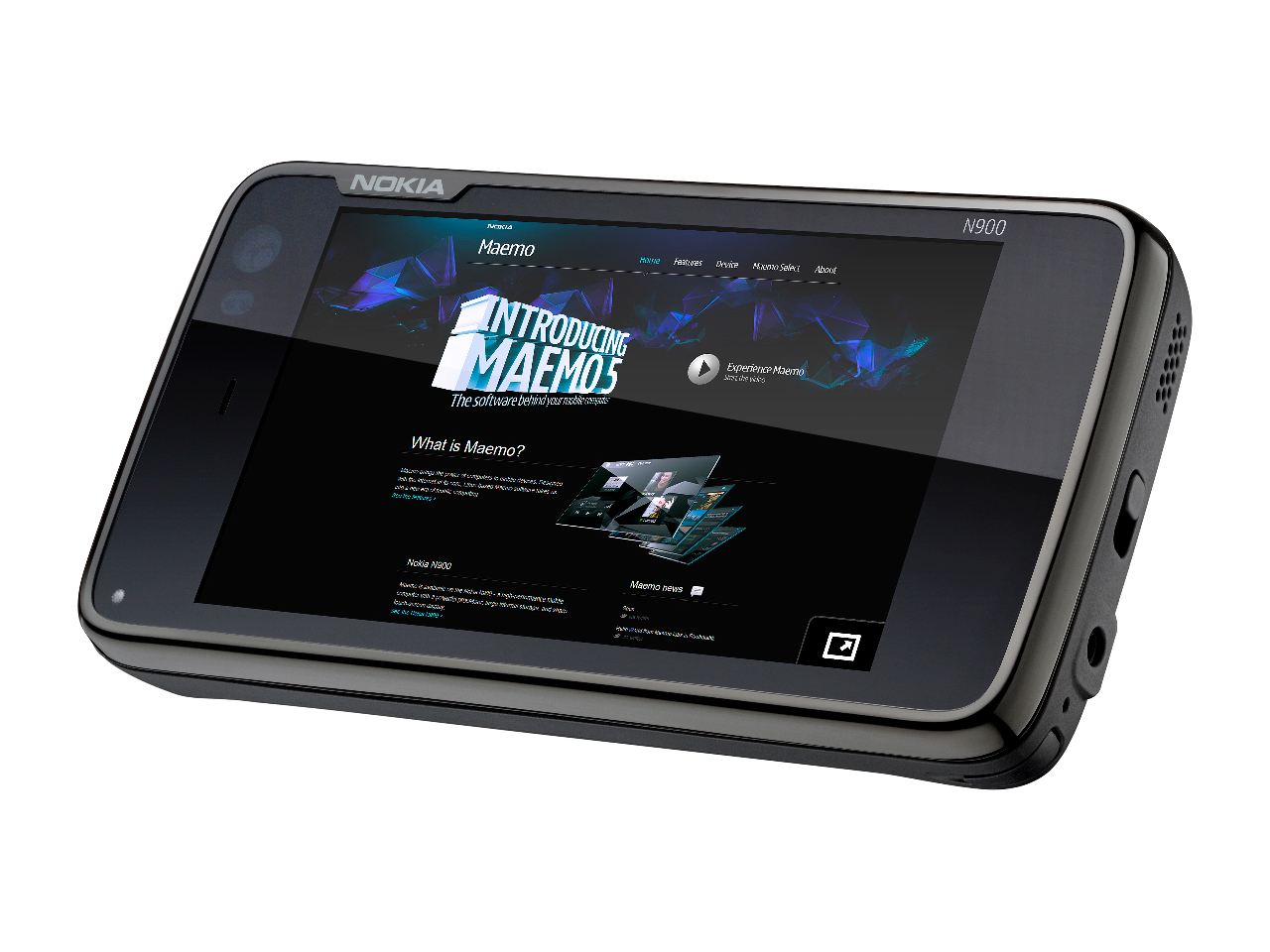Nokia's N900 proves Symbian has failed
Maemo 5: what Nokia should have been using long ago

With the launch of the N900 Nokia has moved the mobile phone closer to the PC experience, but is this an admission that Symbian simply isn't up the task any more?
The news that Nokia had decided to buy the Symbian OS from its partners and launch the Symbian Foundation led many to believe that this meant the OS was going to be the Finns' sole focus, but it turns out that it may be the opposite.
Word is that while Nokia will keep plugging away with Symbian for its mid-range handsets, it will be Samsung leading the development of the older OS and Nokia will be looking almost exclusively at the Linux-based Maemo.
And why not? It has so much more potential than Symbian ever had, with things like the Firefox mobile browser, improved support for high-end hardware and a more open platform for developers to work with.
Symbian, on the other hand, especially the S60 release for the smartphone segment, has never really caught the imagination of the phone-buying public. Yes, it's a fairly powerful platform and has been refined over the many years it's been around, but it's also been the cause of some pretty bug-filled handsets (the N95 and N96 spring to mind).
And it's for this reason it has failed - such long experience with it should have given Nokia the ideal weapon to challenge the iPhone when it launched to such huge fanfare, or at least keep up with the likes of Palm with its WebOS.
But the touchscreen game seems to have caught Nokia on the hop, and it needs a new weapon to help take it into the brave new world of social networking mobile phones and bring with it an OS that's not known for crashing under too much strain.
Get daily insight, inspiration and deals in your inbox
Sign up for breaking news, reviews, opinion, top tech deals, and more.
So it makes sense for Nokia to think about porting the Maemo OS to the mobile phone segment after tinkering with it for a few years on the Internet Tablet range, especially in the face of the early success of Google's Android.
Losing the Symbian stigma
With it, the firm can re-launch Nokia smartphones to consumers without any of the Symbian stigma, giving consumers a richer browser experience, a fully rounded application portal thanks to the Ovi Store and a more robust device to boot.
And let's face it, Nokia had to do something to arrest its startling slide in the smartphone rankings. Where it was once the undisputed leader, it has slid to the point where it is in danger of being usurped by the likes of RIM or Apple in the next few years, with the likes of the 5800 XpressMusic and Nokia N97 failing to get the press the iPhone or the Bold have managed.
Nokia says Maemo will complement the Symbian platform, and that's likely to be very true. It's probable that the S60 interface will be seen on more budget handsets like the 5530XpressMusic, as consumers are going to want to see the opportunity for applications even on cheaper models.
And S60 is perfectly capable for that segment, and is a good tool to have in the locker for the mid-range market.
But Maemo is the tool Nokia needs to take the fight to the iPhone. It's an OS designed to harness social networking, to work properly with touch, and to provide the seamless experience that we just never felt convinced by with Symbian.
Of course, we've yet to see if it will be well implemented in the N900 and beyond, but at least Nokia is moving in the right direction at last.

Gareth has been part of the consumer technology world in a career spanning three decades. He started life as a staff writer on the fledgling TechRadar, and has grew with the site (primarily as phones, tablets and wearables editor) until becoming Global Editor in Chief in 2018. Gareth has written over 4,000 articles for TechRadar, has contributed expert insight to a number of other publications, chaired panels on zeitgeist technologies, presented at the Gadget Show Live as well as representing the brand on TV and radio for multiple channels including Sky, BBC, ITV and Al-Jazeera. Passionate about fitness, he can bore anyone rigid about stress management, sleep tracking, heart rate variance as well as bemoaning something about the latest iPhone, Galaxy or OLED TV.